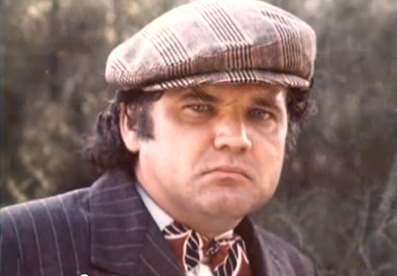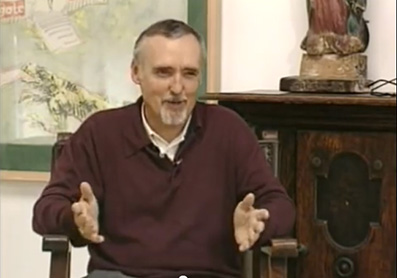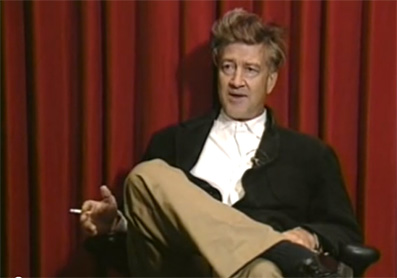|
I tend to steer clear of films about actors. Actually, let me rephrase that. I tend to steer clear of films about movie stars. Most I have seen tend to be made for television and have an air of respectful admiration about them, resulting in films that feel less like documentaries than cinematic retirement cards. It's an altogether different story with films about character actors, whose careers are usually more colourful and peppered with unpredictable ups and downs. They also tend to be more enlightening because we know less about them. Character actors simply don't sell as many magazines and newspapers as A-list actors, and they thus tend to have fewer stories written about them.
Before you start wondering if I've just invented a biographical sub-genre, know that at this very moment there are two highly regarded feature length portraits of cult character actors that are just crying out for a UK release of some sort. I Knew it Was You focuses on John Cazale, a widely respected actor whose all too brief career spanned only five features, but each of those is a recognised modern American classic. At the other end of the productivity scale is That Guy Dick Miller, which explores the life and career of everyone's favourite character actor, who is currently the veteran of over 200 films.
And what of I Don't Know Jack? Directed by Chris Leavens, it's an affectionate but entrancingly open portrait of actor Jack Nance. If the name means nothing to you, then I can only presume you're not well grounded in the films of David Lynch. And you should be, by thunder. Nance played Henry Spencer, the iconic central character in Lynch's gorgeous feature debut Eraserhead. Know him now? He has also had supporting roles in a number of the director's subsequent films, and eventually found a degree of mainstream fame as the long-suffering Pete Martell in Twin Peaks.

I Don't Know Jack was made back in 2002, six years after Nance died in what is still being described as 'mysterious circumstances'. It was released on DVD in the US, but has since been withdrawn and is now changing hands for silly collector prices. As far as I'm aware it has never been screened in the UK and is certainly not available on disc or iTunes download, which is all the more peculiar when you consider the cult status of its subject and the numerous opportunities there have been for a tie-in release since it was made.
Structurally the film is by the old school documentary book, built around straightforwardly shot interviews with family, friends and colleagues and illustrated with a blend of archive photos, home movies and clips from Jack's film work. Technically it's a little uneven, with twitchy adjustments made to framing mid-way through interviews and the odd bit of purposeless zooming in and out, but this fails to seriously distract from the content, and that's where the film delivers. Everyone from Jack's brothers to his close friends, theatre colleagues and his ex-wife Catherine Coulson (Eraserhead's assistant director and The Log Lady in Twin Peaks) have interesting stories to tell, and there are plenty of contributions from his friend and frequent collaborator David Lynch, who is also credited at the start with a 'Presented by' credit. I've never been really sure what that actually means.
I wasn't far into the film before the truth of that title hit me, as I realised just how little I really knew about whose work I’d admired for so long. I was particularly intrigued by his early work in experimental theatre and a performance art group known as The Doo Dah Gang, who staged 1920s style shoot-outs in public places and whose performances included a fake gangster wake that saw Jack laid out motionless in an open casket for three days straight (with carefully stage managed toilet breaks, it should be noted). Thrillingly, there is archive footage here of the troupe in action, including two of the public gunfights and a brief bit of the wake.

Key film jobs are touched on but not explored in that much depth, the focus instead being on the side of Jack that has largely escaped the public eye. Despite the much-expressed love for the man, the contributors are as open about their friend's faults and failings as they are enthusiastic for his talent and the better times. It's these sometimes colourful recollections that are the film's meat and potatoes, engaging personal stories that take on a darker tone when Jack's drinking descends into potentially life-threatening alcoholism. In what might seem to some as a supreme touch of irony, it was a freshly sober Dennis Hopper (who is also interviewed here) who got the end-of-his-tether Nance into life-saving rehab after the two had become friends whilst working on Blue Velvet.
The tragic end to Jack's sometimes blissfully happy but ultimately troubled second marriage to the younger Nancee Kelly is unflinchingly discussed. In what for me is the single smartest editing decision in the film, Meatballs 4 director Bob Logan is allowed to tell the entire story of the night that Nancee died without cutaways or interruption, save for a single brief dissolve to bypass what we can presume was a digression or a pause to gather thoughts. That emotions come to the surface when discussing Nance's death is both unsurprising and appropriate, the circumstances that led to it remaining the subject of partial speculation due to the lack of witnesses and the case's on-going status as an unsolved homicide.
But it's the fonder and more jocular memories that give the film its heart, stories enlivened by the tendency of the interviewees to mimic their friend's distinctive mode of speech. Probably the most entertaining on this score is his friend Wayne Grace, whose spot-on impersonation is most tellingly employed when he recalls the time when Nance's marriage to Catherine Coulson was in decline. "Towards the end it was just the way he said her name," he reveals with a knowing smile, mimicking Jack's exasperated and elongated pronunciation of, "Caaaathrine..." What makes this so easy to visualise and adds to its comic edge is that Nance got to repeat that very name in just the same tone in his role as Pete Martell in Twin Peaks, in disapproving exasperation his screen wife, Catherine, played by Piper Laurie. And for all the dark tales of Jack's self-destructive drinking, there's a genuinely funny story, told by friend and fellow Doo Dah Gang member T. Max Graham, about a money-making idea concocted during a mutual boozing session that has a glorious punch line, one I'm not about to spoil by revealing here.

I Don't Know Jack is a straightforward but revealing and ultimately touching tribute to an undervalued and underused actor (I, for one, was astounded to learn that he was at one point up for Dustin Hoffman's role in The Graduate) whose place in cult film history is nonetheless secure. That he's primarily remembered for his work with David Lynch is not such a bad thing – these were, after all, his best film roles – but for showing that there was so much more to Nance's life and talent, this film is one that deserves to be more widely seen. For Lynch completists it's also an absolute must.
This, of course, raises the issue of the film's current lack of availability, and why I seem to be trying to sell you on a film you cannot see. Well it turns out you can. Although unavailable in any regular purchase or rental format at present, the whole film was uploaded to YouTube a year ago and is available for viewing there.* It's a far from ideal format, particularly as the resolution is just 360p and a small codec issue causes the image to suffer small but regular stutters, but if you can tolerate this then the content is worth it. What we really want, of course, is for some enterprising independent distributor to pick the film up for a UK release, either on disc or as a digital download, where the overheads are cheaper. It's not just about the quality of the image and sound – a portion of the proceeds from the film were distributed to the Nance family and The Circus of Marvels, a collective of theatre artists that Jack worked with during the course of his career. So come on somebody, make the film available. I'll certainly buy a copy, and with Twin Peaks freshly re-released on Blu-ray, the timing is close to perfect.
* I'm deliberately avoiding posting a link, lest it prove popular enough to attract unwanted attention that could see the film taken down before it (re-) appears in a regular format. Just do a search, you'll find it. |